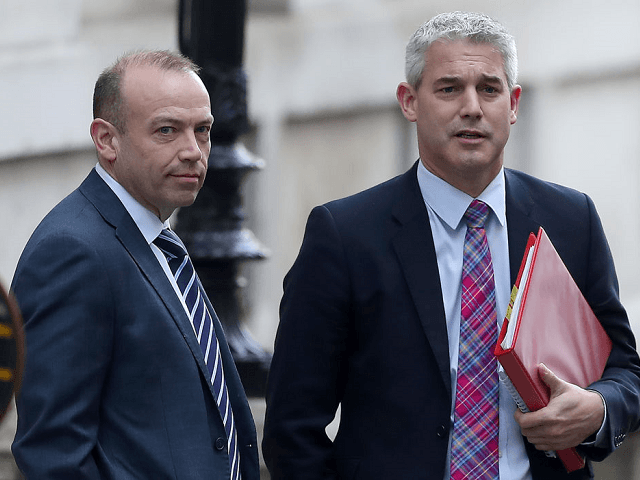A second Conservative minister has resigned the government in one day in protest over Theresa May’s decision to extend the UK’s departure date from the EU from the 29th March.
Brexiteer Chris Heaton-Harris [above, left], who was parliamentary under-secretary in the Department for Exiting the European Union, resigned this afternoon saying “I truly believe we should have honoured the result of the 2016 referendum and left on [March 29th, 2019]… I simply cannot support any further extension to Article 50 and this obviously means I cannot stay in government”.
In his resignation letter to the Prime Minister, Heaton-Harris wrote: “I completely understand you do not want to leave the European Union without a negotiated deal and that obviously makes my job in Government irrelevant.”
His departure comes hours after ex-Wales Minister and government whip Nigel Adams resigned from the government in protest at Theresa May’s plans to meet with Labour leader Jeremy Corbyn to discuss a ‘unifying’ Brexit deal. Mr Adams said to the Prime Minister after his departure “It now seems that you and your cabinet have decided that a deal — cooked up with a Marxist who has never once in his political life put British interest first — is better than no deal.”
Many other Brexiteers in the Conservative Party have publicly condemned Mrs May for her decision to meet with Mr Corbyn, with former Foreign Secretary and leading leave supporter Boris Johnson stating that the Prime Minister was “entrusting the final handling of Brexit to Labour” and former Conservative leader Iain Duncan Smith stating that Corbyn was a “Marxist whose sole purpose in life is to do real damage to the country”.
Jeremy Corbyn is reportedly seeking a customs union and a guarantee of permanent workers’ rights in his negotiations with Mrs May in order to back any plan going forward. Mrs May is hoping that a ‘joint deal’ will finally break the deadlock in the House of Commons.
MP’s have so far rejected the Prime Minister’s withdrawal agreement three times and have also voted down every proposed option put forward, including no deal and holding a second referendum, in a series of non-binding ‘indicative votes’ over the last two weeks.
Parliament is to vote today on a motion brought by Parliament to prevent the United Kingdom leaving the European Union on a full and permanent basis — also known as a no-deal Brexit — and are likely to vote again next week on further indicative votes and even on the Prime Minister’s deal for the fourth time.

COMMENTS
Please let us know if you're having issues with commenting.